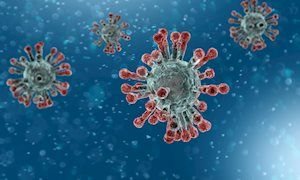 Prophylactic use of the drug haloperidol does not help to prevent delirium in intensive care patients or improve their chances of survival. Therefore, there is no reason anymore to administer the drug as a preventive measure to reduce the burden of delirium. This was revealed following a three-year, large-scale study among 1,800 patients in 20 Dutch ICUs, headed by Radboud university medical center. The results of this world’s largest research project into delirium prevention in the ICU have been published on February 20 in the Journal of the American Medical Association (JAMA).
Prophylactic use of the drug haloperidol does not help to prevent delirium in intensive care patients or improve their chances of survival. Therefore, there is no reason anymore to administer the drug as a preventive measure to reduce the burden of delirium. This was revealed following a three-year, large-scale study among 1,800 patients in 20 Dutch ICUs, headed by Radboud university medical center. The results of this world’s largest research project into delirium prevention in the ICU have been published on February 20 in the Journal of the American Medical Association (JAMA).
Large-scale research
There were indications that haloperidol could be effective not only to treat, but also to prevent delirium. A large-scale trial, headed by Mark van den Boogaard from the Radboud university medical center, was conducted in 20 Dutch ICUs to investigate if prophylactic use of haloperidol could reduce delirium and its consequences. A total of 1,800 ICU patients with a high risk of delirium were included in this trial and received a low dose of haloperidol, or a placebo. This trial, funded by ZonMw (the Netherlands Organisation for Health Research and Development), is worldwide the largest trial in this field.
Mortality
As mortality rates among patients with delirium are higher, the researchers tried to find out whether using prophylactic haloperidol would reduce the mortality and delirium and its sequelae.
No difference
The conclusions of this trial were crystal clear: prophylactic therapy with haloperidol did not affect any of the endpoints being studied. Principal investigator Mark van den Boogaard: “This large-scale study shows indisputably that use of prophylactic haloperidol in ICU patients has no beneficial effects whatsoever. These findings will lead to fewer unnecessary drugs being prescribed to ICU patients.”
Head of the research, Professor Peter Pickkers: “The scope of the study and the fact that the results are so unambiguous make the message from our research abundantly clear: there is absolutely no point in administering haloperidol to ICU patients as a preventive measure.”
This research is conducted within the theme Healthcare improvement science.
-
Want to know more about these subjects? Click on the buttons below for more news.
Related news items

More than five million euros for research to improve palliative care Jeroen Hasselaar will lead research project with Horizon grant
15 June 2022 Jeroen Hasselaar will lead a large international research project. With a 5.3 million euro grant from the EU's Horizon program, he and his team want to improve palliative care for cancer patients, together with partners from nine European countries. read more
Most COVID-19 ICU survivors experience symptoms one year after ICU admission Publication in JAMA
25 January 2022 75% of the COVID-19 survivors who were treated in the Intensive Care Unit (ICU) experience physical, mental and/or cognitive problems one-year post ICU. This shows the large-scale MONITOR-IC study led by Radboudumc. read more
1.4 million euro to reduce hospital admissions due to medication
7 January 2022 A team of sixteen Dutch hospitals received a grant of 1.4 million euros from ZonMw. They will investigate whether they can reduce medication related hospital readmissions. read more
Telemonitoring in chronic heart failure not unqualifiedly positive often additional demand for care without decreasing number of admissions
19 October 2021 To contain rising healthcare costs, digitization of healthcare is often seen as a solution. Researchers at the Radboudumc examined the use of telemonitoring in chronic heart failure. Does this reduce hospital admissions and visits to the emergency room? read more

